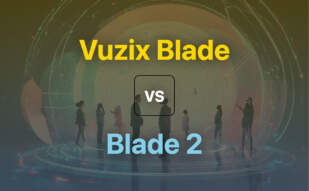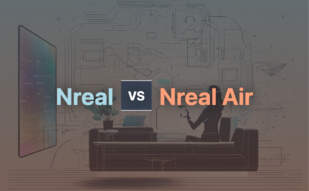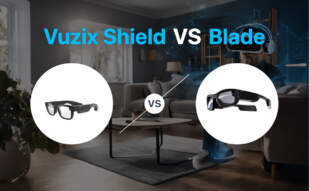For advanced AR applications, Vuzix Blade leads the pack with superior functions, powerful Android 11 OS, and enterprise software compatibility. However, for personal media consumption on a budget, lean on the minimalist yet capable Nreal Air.
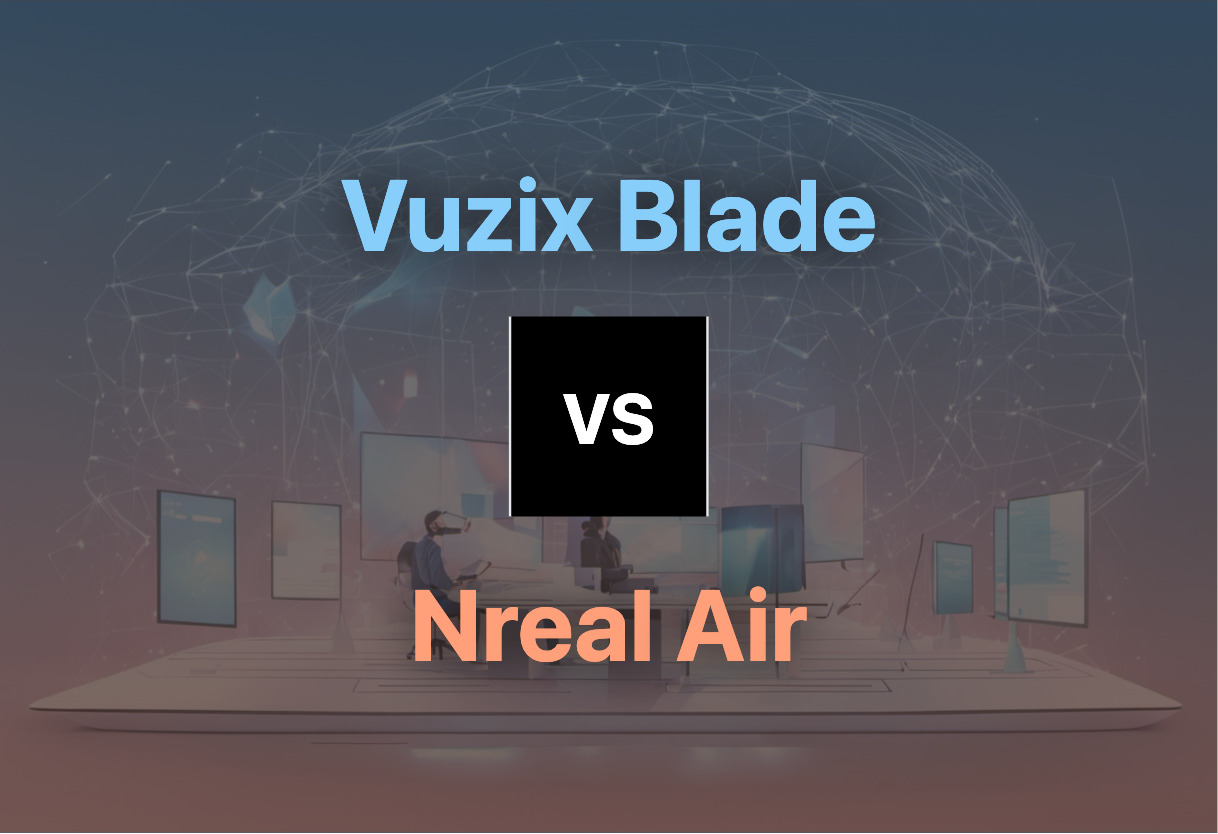
Key Differences Between Vuzix Blade and Nreal Air
- Price: Nreal Air is economical at $379 vs Vuzix Blade at $999.99 for the consumer version.
- Applications: Vuzix caters to various industries including healthcare, retail and construction, while Nreal is geared towards personal media playing.
- Connectivity: Nreal requires a wired connection to a smartphone, while Vuzix uses Wi-Fi and Bluetooth.
- Design: Nreal boasts a sleeker, lighter design, however, Vuzix offers enhanced eye protection.
- OS Compatibility: Vuzix is integrated with Android and iOS, Nreal is primarily Android-compatible.
- Advanced Features: Vuzix has an 8-megapixel camera, microSD slot and noise-cancelling microphones; Nreal lacks camera for mixed-reality experiences.
- Power Consumption: Nreal consumes 50% less power, but impacts the battery life of the connected device, while Vuzix has poor battery life.
| Comparison | Vuzix | Nreal |
|---|---|---|
| Product range | Vuzix Blade, Blade 2 AR smart glasses | Nreal Air, Nreal Light AR glasses |
| Price | $999.99 – $1,299.99 | $379-$599 |
| Operating System | Android | Android, macOS |
| Display | 480×853 resolution with 24-bit color transparency | 1920 x 1080 separate display on each lens |
| Certification | ANSI Z87.1 certified safety glass | TÜV Rheinland Group’s Low Blue Light and Flicker Free Certification |
| Internal Storage | 8GB, expandable via microSD | Depends on connected device |
| Audio | BT functionality and noise-canceling microphones | Depends on connected device |
| Connectivity | 2.4GHz Wi-Fi and Bluetooth | USB-C connection with compatible devices |
| Applications | Remote support, Teleconferencing | External monitor for gaming, streaming services |
| Downsides | Uncomfortable fit, unflattering design, poor battery life, high price | Missing onboard battery or processing power, limited mixed-reality experiences due to lack of sensors |
What Is Vuzix and Who’s It For?
Vuzix is a pioneering force in the AR/VR technological landscape, notable for its current flagship product, the Vuzix Blade®. These self-contained AR smart glasses are enhanced with advanced waveguide optics and innovative features including an 8-megapixel camera, voice control, and Noise-canceling microphones. Built with professionals in healthcare, construction, security, and retail in mind, they also service a consumer market with a version that integrates Google Assistant and Amazon’s Alexa.

Pros of Vuzix
- Bright display
- Numerous apps
- Expandable internal storage via microSD
- Includes camera
Cons of Vuzix
- Uncomfortable fit
- Unflattering design
- Overall dimming effect due to tinted lenses
- Poor battery life
- High price
What Is Nreal Air and Who’s It For?
Nreal Air, rooted in China’s augmented reality industry, offers a more affordable entry into the world of AR glasses. Despite the relatively lower cost, these glasses boast a substantial field of view and are designed as a personal theatre for streaming services and games. This device brings a refreshing wave of convenience to Android users, gamers, and digital media enthusiasts.

Pros of Nreal Air
- Affordable
- Lightweight design
- Wide field of view
- Low power consumption
- Supports multiple platforms
Cons of Nreal Air
- Requires continuous connection to high-end Android smartphone
- Affects battery life of connected device
- Lacks true AR functionality
- Limited app availability
- Tethered by a cable
A Final Word: Vuzix Blade vs Nreal Air
The battlefield stands in favor of both Vuzix Blade and Nreal Air in distinct ways. The preference hinges on the user’s requirements and desires. Let’s evaluate further.
Developers & Tech Enthusiasts
Vuzix Blade offers a feature-rich ecosystem with full BT functionality, 8GB internal storage, an autofocus camera and more. Matched to a sleek design, it becomes a perfect gadget for developers focused on deep integration. However, the measure of comfort might be a downside.Nreal Air presents itself as a relatively affordable and comfortable option with a unique personal theatre experience, sound for gaming enthusiasts and developers who focus on simple yet supple user experiences.

AR/VR Creators
If you’re an AR/VR content creator on a professional mission,Vuzix Blade is your competence builder. With its ANSI certification, glare-reducing lenses, and waveguide-based display, it promises to aid creators in churning out high-quality, immersive content. However, Nreal Air, although lacks some of the bells and whistles, leads with its simplistic and user-focused design.
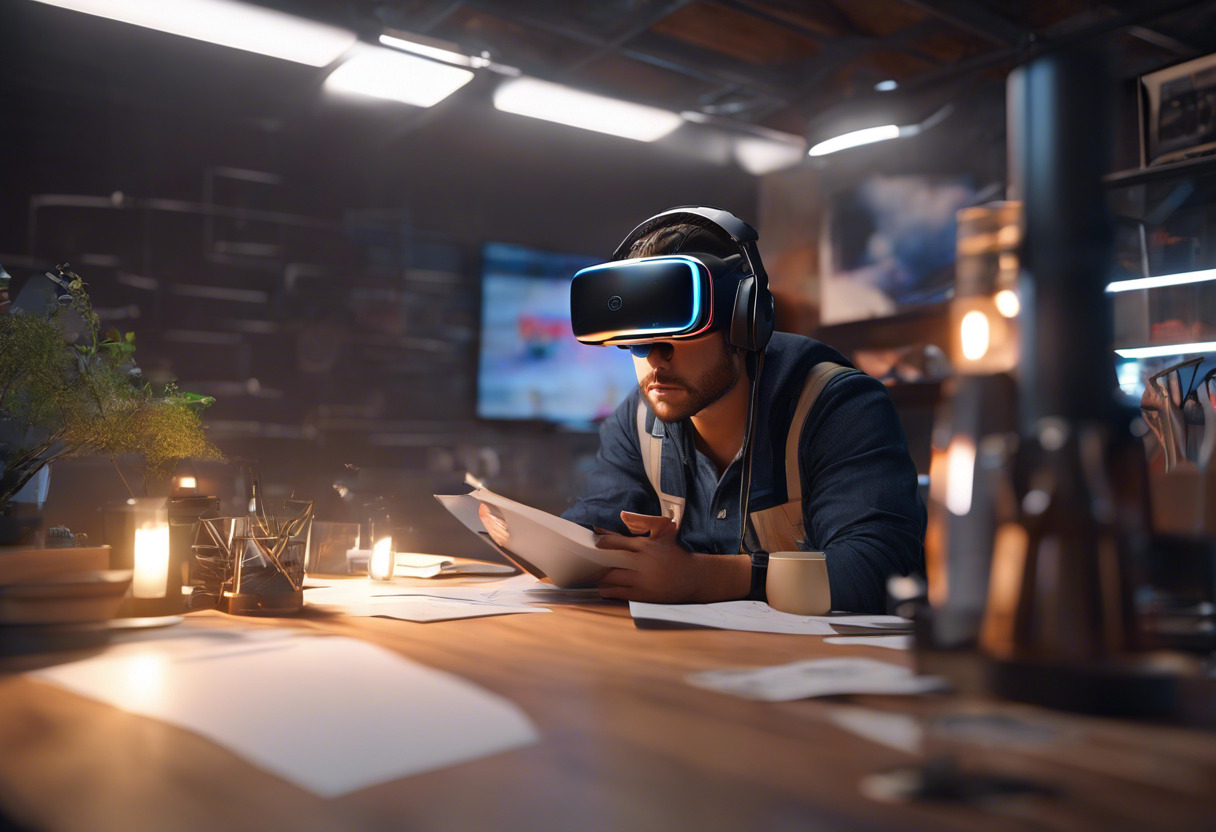
Game Makers
Game makers might gravitate towards Nreal Air for its ability to provide a comparably larger screen experience and compatibility with many gaming platforms. This could elevate the gaming experience to the next level. Conversely, Vuzix Blade’s Android OS, gesture recognition and Google Assistant integration might pitch it as a more appealing option for game-makers focused on interactivity and voice control.

In the final analysis, between Vuzix Blade and Nreal Air, while Blade presents itself as a comprehensive tool with extensive functionalities, Nreal Air blends user experience and affordability. Both devices make a solid case; the choice is yours.
Patrick Daugherty
Content writer @ Aircada. Merging AR expertise with a love for late-night gaming sessions.



